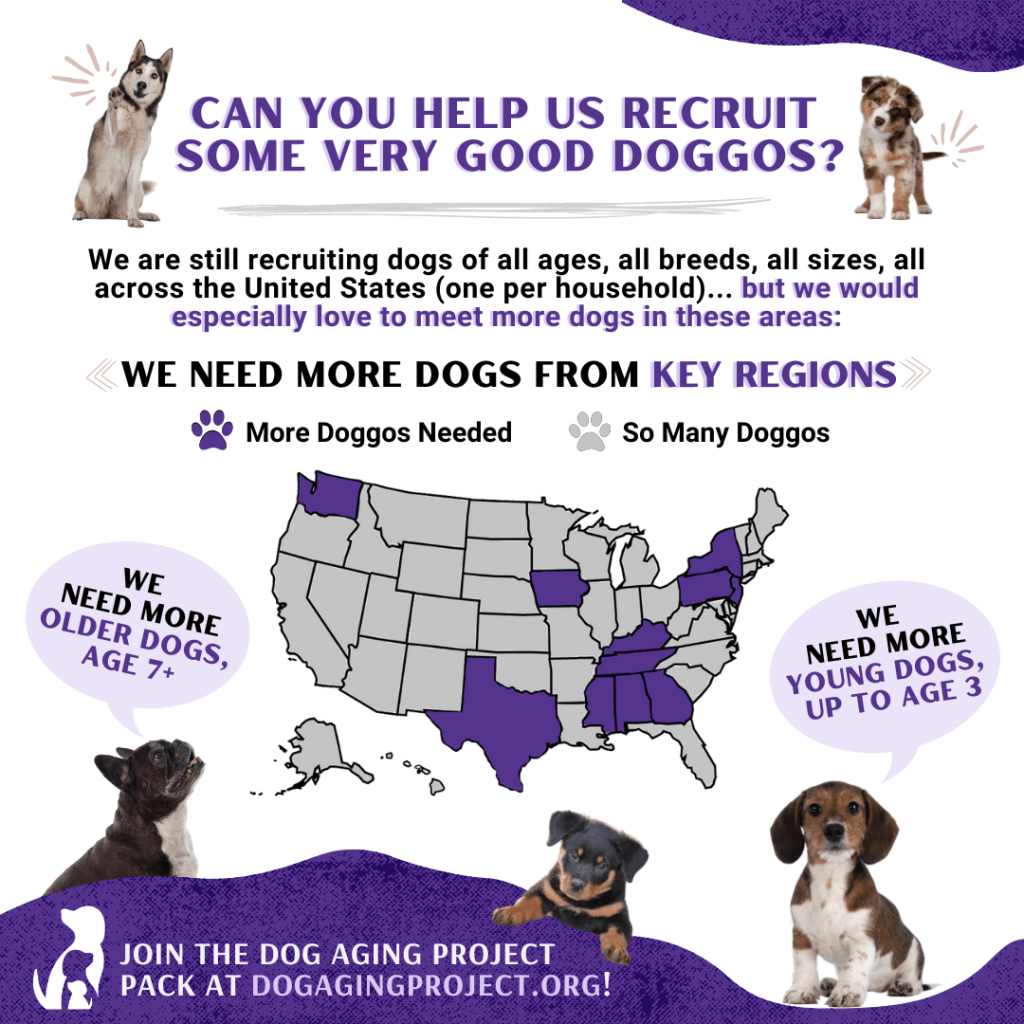The Dog Aging Project is making strides in understanding canine longevity, with over 50,000 dogs enrolled in the study since its inception in 2018.
The project, co-directed by Matt Kaeberlein, aims to explore the biology of aging in dogs and identify ways to extend their lifespan. Researchers have found that while genetics play a role, environmental factors such as diet and activity levels are significant in determining a dog’s longevity. “One goal is to fundamentally understand the biology of aging and then the other goal is to do something about it,” said Kaeberlein. The Dog Aging Project collects extensive data from dog owners and veterinarians, including information on breed, food, activity, and weight. This data helps researchers track the health and lifestyle of participating dogs.
Findings from the project indicate that larger dogs tend to age faster and have shorter ifespans compared to smaller dogsAdditionally, purebred dogs live about a year less than mixed breeds of the same weight. The study also highlights the importance of activity, noting that active dogs are less likely to develop dementia. Social interaction is also beneficial for dogs’ cognitive function. A surprising discovery from the research is that dogs fed once a day are less likely to develop age-related health problems compared to those fed multiple times a day. However, researchers have not yet determined specific causes for these health impacts.

“I went into this because I wanted to make my dog live longer and healthier and I wanted to make other people’s dogs live longer and healthier,” Kaeberlein said
While the Dog Aging Project continues to gather data and insights, it offers hope to dog owners looking to extend the lives of their beloved pets. The project is open to more participants, seeking dogs of all ages, breeds, and sizes to contribute to this ongoing research.
Enroll your dog here

